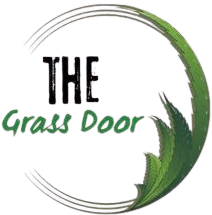In the world of cannabis, few compounds have gained as much attention in recent years as Tetrahydrocannabinolic Acid (THCA). While many are familiar with THC, the psychoactive component in cannabis, THCA is a precursor to THC and doesn’t produce the same intoxicating effects. However, THCA is growing popular due to its supposed health benefits and the surge in demand for hemp and cannabis based goods. As the cannabis sector continues to evolve, so do the rules around it, creating confusion for both consumers and businesses.
A recent spate of headlines declaring that “Florida Bans THCA” has many people questioning whether THCA is still legal in the state and what its future holds. But is it accurate to say that Florida is taking steps to make THCA illegal? Or is the story incomplete? We will dissect the scenario, investigate the possible causes of the rumors, and provide you with all the information you require regarding THCA’s legal standing in Florida in this post.
What is THCA?
Before diving into Florida’s specific legal stance, it’s essential first to understand what THCA is. Tetrahydrocannabinolic acid (THCA) is a naturally occurring compound found in cannabis plants, particularly in raw, unheated cannabis. Unlike THC (tetrahydrocannabinol), THCA does not have psychoactive properties, meaning it won’t get you “high.” However, it does have its potential benefits, such as anti-inflammatory and neuroprotective effects.
THCA can be found in raw cannabis flowers and is typically consumed in the form of tinctures, edibles, and extracts, often used by individuals looking to avoid the psychoactive effects of THC. When cannabis is heated or decarboxylated (as it is when smoked or vaporized), THCA is converted into THC, which is when the psychoactive effects are experienced.
Both the medical and recreational cannabis sectors have taken notice of THCA because of its possible health advantages and non-psychoactive characteristics. However, as its popularity grows, so does the necessity for precise controls, which leads us to Florida’s current legal environment.
Florida’s Cannabis Landscape:
Florida has long been a state with a complex relationship with cannabis. In 2016, the state legalized medical marijuana through Amendment 2, allowing patients with qualifying conditions to access medical cannabis. The medical marijuana industry in Florida has seen significant growth. As of now, the state has one of the most extensive medical marijuana programs in the U.S., with thousands of patients enrolled.
While the medical marijuana program has been a success, recreational cannabis remains illegal in Florida, and the laws surrounding cannabis-derived products are continually evolving. This includes not only THC and CBD but also lesser-known cannabinoids like THCA.
The Rumors: Is Florida Banning THCA?
After Florida lawmakers started debating possible modifications to the legal status of specific cannabis products, the recent rumor of a THCA ban in the state gained momentum. According to a number of press reports and social media posts, Florida intends to outlaw THCA, implying that the state would emulate other states that have taken action to control or prohibit the sale of THCA and related substances.
However, despite the buzz surrounding this topic, it’s crucial to understand that a ban on THCA has not yet been enacted in Florida. The confusion likely arises from the ongoing debates and discussions regarding the regulation of cannabis compounds and hemp-derived products in the state.
While there are currently no official state-wide bans specifically targeting THCA, Florida has been discussing ways to tighten regulations around hemp-derived products, especially those containing cannabinoids like THCA and delta-8 THC, which exist in a legal gray area.
Why the Confusion About THCA in Florida?
It is useful to examine the larger framework of hemp and cannabis laws inthe United States in order to completely comprehend the ambiguity surrounding THCA’s legal status in Florida. Hemp was made lawful at the federal level after the 2018 Farm Bill was passed, as long as its THC content was less than 0.3%. This allowed THCA and other hemp-derived products to proliferate on the market.
However, not all states have embraced hemp legalization equally, and some have passed their restrictions.
In Florida, as in other states, the legal landscape surrounding hemp-derived products is still developing. Some lawmakers have expressed concerns that certain cannabinoids, like delta-8 THC and THCA, may be sold without proper regulation or oversight. These concerns have prompted discussions about potential restrictions or bans, though no definitive legislative action has been taken to outright ban THCA.
What Could a THCA Ban Look Like in Florida?
Although no official ban has been enacted, future legislation could impose stricter regulations on THCA. For example, lawmakers could require that products containing THCA be subject to more stringent testing, labeling, and distribution guidelines. This might include ensuring that THCA products are derived from hemp that meets specific quality standards or that they are sold exclusively through licensed medical marijuana dispensaries.
To guarantee adherence to the 0.3% THC standard set by the federal government, the state could also propose legislation that targets items that contain both THCA and trace amounts of THC. Regulators may find it difficult to distinguish between items that contain THC and those that contain non-psychoactive THCA because THCA can be decarboxylated into THC.
The Role of Advocacy and Industry Groups
Advocacy organizations, business leaders, and medicinal cannabis users are actively trying to make sure that any regulatory adjustments Florida makes balance safety and accessibility as the state considers how to regulate THCA. Many of these groups advocate a legislative framework that allows users to keep consuming THCA products while ensuring their safety and proper labeling.It is probable that industry participants, including medical marijuana dispensaries, cannabis enterprises, and hemp growers, will have a significant impact on future THCA rules. These groups are trying to provide clear rules and guidelines that protect businesses and consumers alike while allowing the hemp and cannabis industries to keep growing.
What Does This Mean for Consumers?
For Florida consumers, the current state of affairs surrounding THCA remains relatively stable. While there may be changes, consumers should continue to be cautious and informed about their purchasing products. Here are some tips for navigating the evolving landscape:
- Stay Updated: Cannabis laws are constantly changing. Consumers should watch news outlets, government websites, and updates from advocacy groups to stay informed about any potential regulatory changes.
- Verify Product Legitimacy: Always purchase THCA products from reputable sources. Look for lab-tested products with clear labels that show THC content and other relevant information.
- Consult Healthcare Providers: If you are using THCA for medical reasons, it’s essential to consult with a healthcare professional to ensure that it is appropriate for your needs and that you comply with local laws.
- Know the Risks: While THCA has shown promise in various areas of health, there is still a lot to learn about its long-term effects. As with any cannabis-derived product, proceed with caution and educate yourself about the potential benefits and risks.
It is too soon to say that Florida is outlawing THCA. There has been no official decision to completely ban these goods, despite the fact that certain legislators and authorities are becoming alarmed about the proliferation of unregulated hemp-derived products, such as THCA. Instead, we may see changes in how THCA is regulated, ensuring that products meet safety standards and comply with state and federal guidelines.
As the cannabis landscape shifts, consumers and businesses must stay informed and adaptable. The future of THCA in Florida and beyond remains uncertain, but one thing is clear: the conversation surrounding cannabis and its compounds is far from over.
If you find this article helpful then do leave us your thoughts on the comment section and subscribe for more such articles.




